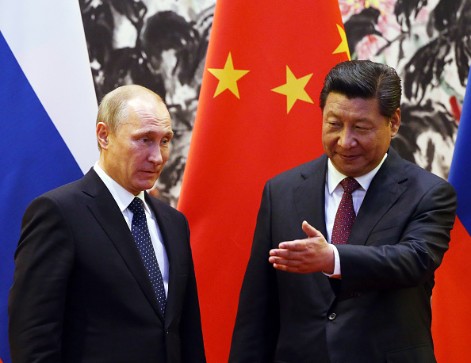 (Photo by Sasha Mordovets / Getty Images)
(Photo by Sasha Mordovets / Getty Images)
Personalist Dictators Exacerbate Security Threats in 2017
By Katharine Nasielski / WiSe Fellow
With a bang and a nod toward history, 2016’s final month brought images of a gunman standing over Andrei Karlov, Russia’s Ambassador to Turkey. The comparison to the assassination of Franz Ferdinand, which infamously sparked World War I, seemed obvious. In a time when traditional alliances and global institutions seem more unstable than they have in decades, this assassination added to the litany of foreign policy questions that hovered over 2017. Instead, nothing happened. Talks between Turkey and Russia to reestablish their diplomatic relationship continued. Prime Minister Erdogan used the assassin’s stated commitment to the plight of Syrian Muslims as an opportunity to further increase his police state. President Putin continued to support Assad’s vicious war on his own people. And Russia and Turkey have now begun joint military operations in Syria. So what changed? Over the past decade, there has been a notable prioritization of personal power over a commitment to alliances and the maintenance of global order by leaders around the world.
A month into 2017, the list of foreign policy unknowns are vast: is there any hope for nuclear non-proliferation? Can cyber policy keep up with the threats posed on our infrastructure from hacking by foreign governments? Will the Middle East cold war between Iran and Saudi heat up? But these issues cannot be considered independently. Underlying all of these specific policy priorities exists a populist wave that has engulfed global politics – from the Arab Spring to Eastern Europe to the Philippines – that risks being coopted by autocratic opportunism. This pattern threatens to reverse the spread of democratic ideals across the world and exacerbate traditional national security threats.
Just five years ago, in the early days of the Arab Spring, populist optimism fueled global discourse. Liberal world leaders, including President Obama, were inspired by home-grown civil resistance movements confronting dictatorships and autocracies who demanded the democratic Middle East that generations had failed to impose from abroad. But, as long-time leaders fell, making way for new challenges to democratic ideals, the international community learned the lasting lesson that the chaotic pursuit of democracy holds no promise of a better future.
This strain of populism and anti-establishment sentiment has expanded around the world. Although these political movements often stem from economic grievances, and can manifest as hyper-liberal or hyper-conservative, they have created power vacuums that are increasingly vulnerable to autocratic-leaning political movements. In election after election, the “strong” leader is proving to appeal to the unpredictable threats of terrorism and economic inequality.
Backsliding democracy and a failure to support democratic institutions pose serious threats to long-term international security. The relationship between good governance and peace is proven across the world. In Central, Northern, and the Horn of Africa, autocratic systems of governance have overlapped almost entirely with intense and prolonged conflict. Peace has settled across Europe in concert with democratic governance. As democracies have proliferated, interstate conflict has waned.
While monarchies and military regimes certainly conflict with US values and interests, the rise of “personalist” dictators, like Putin, Maduro, and Xi, presents the greatest threat to a peaceful and prosperous global order and the most acute threat to the United States. Autocratic ideals concentrated in individual leaders result in more aggressive foreign and domestic policies, higher likelihood of nuclear proliferation, and higher rates of interstate conflicts. To combat these threats, the United States and its allies who are committed to democracy will need to strengthen their commitment to international institutions that govern the politics surrounding weapons and warfare. Disempowering these institutions will result in a reliance on weapons buildups instead of diplomacy.
The United States has long represented a role model for struggling democracies worldwide. Maintaining a global climate in which this leadership has power and stability requires that the U.S. continue to recognize the long-term threats that occur from the perpetuation of autocratic alliances. Although long-term thinking in foreign policy has never been the norm, embracing the messiness of democratic transition and democratic governance is required to preserve peace and diplomacy.





